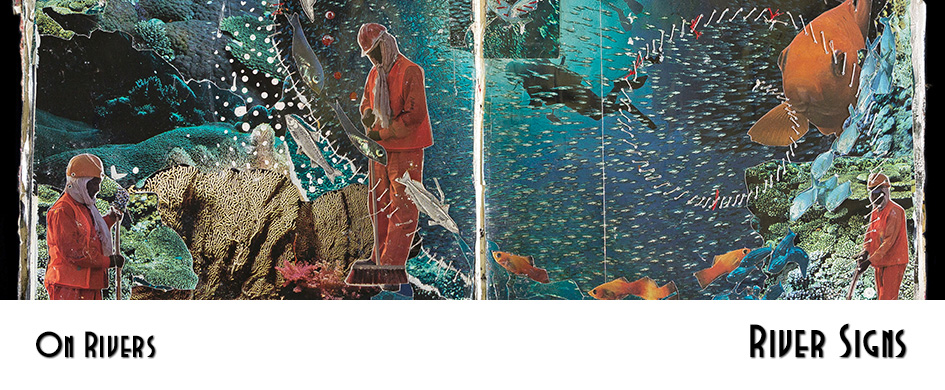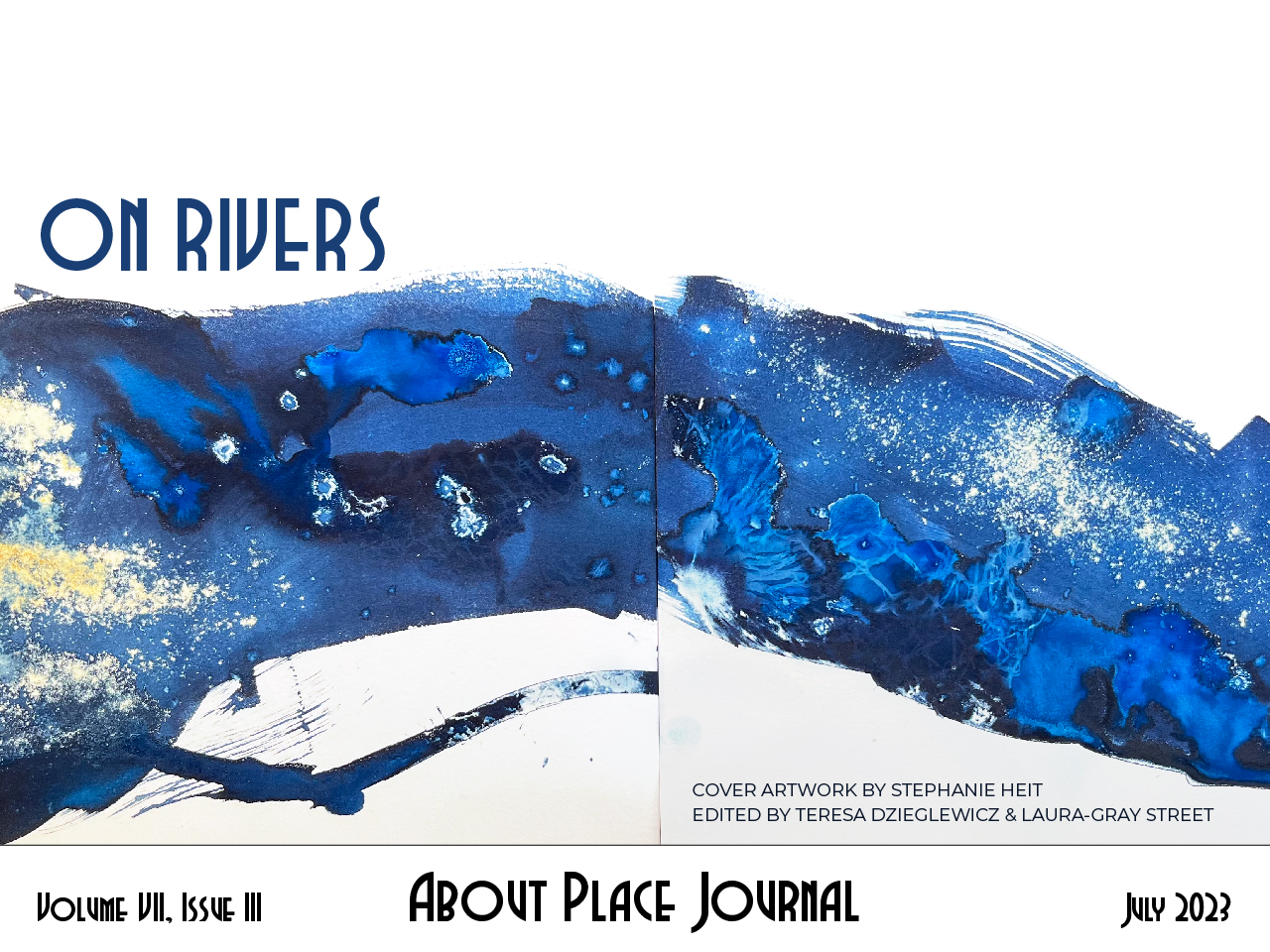metaphors. Avoid phrases like the refugee pipeline,
refugees flooding in, a surge of newcomers, a new wave
of immigration. When I worked with refugees,
these were the instructions from on high, a way to fight
the currents of anti-immigrant sentiment
beating persistently against our shores.
But I am the daughter
of an immigrant, and so I know
that travelers’ stories cannot be told
without mention of the water
they’ve crossed to get here,
the rivers and streams they left
behind and the bays
that welcomed them, shining,
when they arrived.
I am a Palestinian
Tennessean, transported to Iowa
by way of dreams, and so my story
converged the way rivers do. My father
was born 84 miles from the Sea of Galilee
where Jesus Christ is said to have miraculously
set his feet, my father had to cross the sacred
River Jordan on the road to Kuwait
and spent his childhood kicking a soccer ball
on the beaches of Salmiya. Maybe he still heard
the lull of the Arabian Gulf waves as he slept
on the plane across the Atlantic, the ocean
responsible for the term “overseas,” for those nebulous
other places from where so many of us descend. And his body
of water met my mother’s, her water story carved
from Tennessee creeks and dotted with fishing ponds, marked
by weekend trips to rocky waterfalls, precarious places
where so and so had died, and their bodies
of water are how I came to be, distant
tributaries merging to form
the water of the womb, the calm
ocean where I took up
first residence; floating
is the first way
we learn
how to move.


